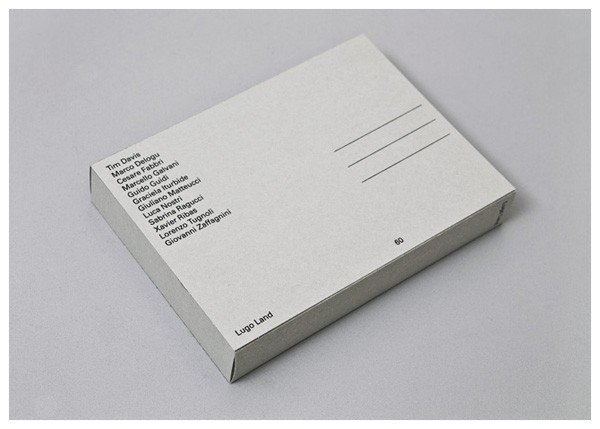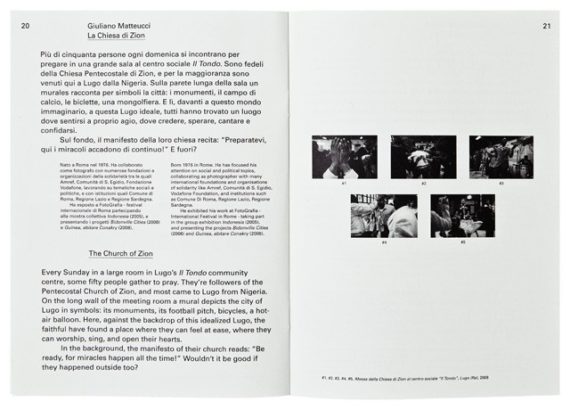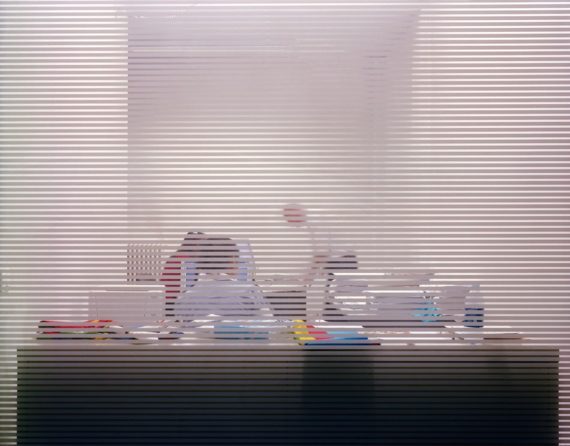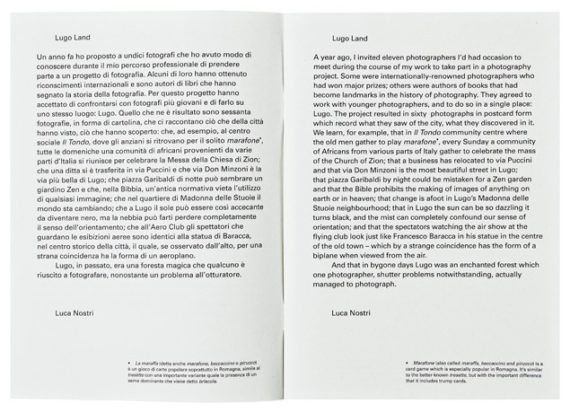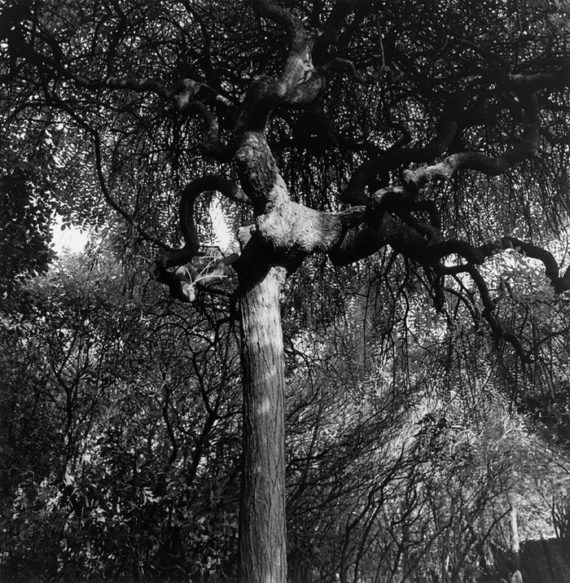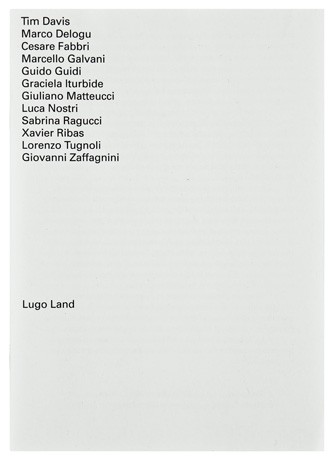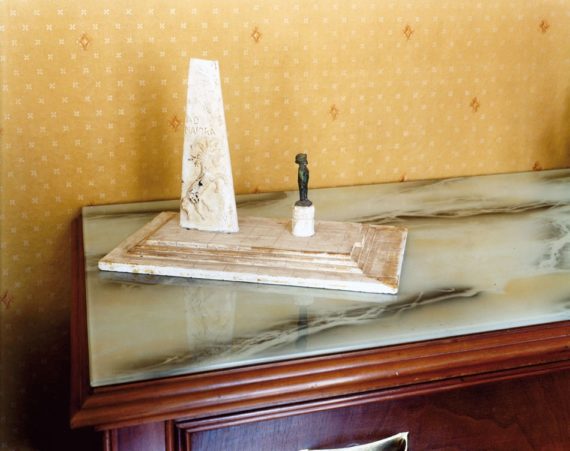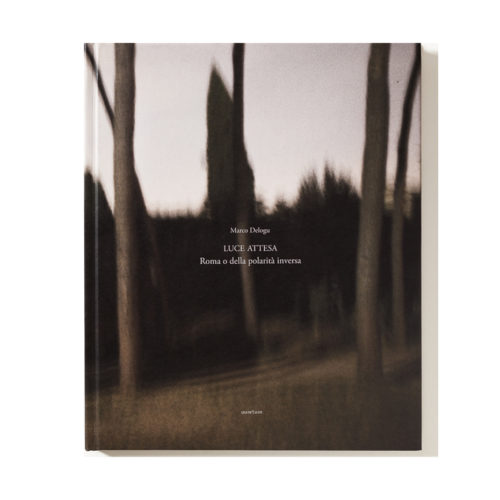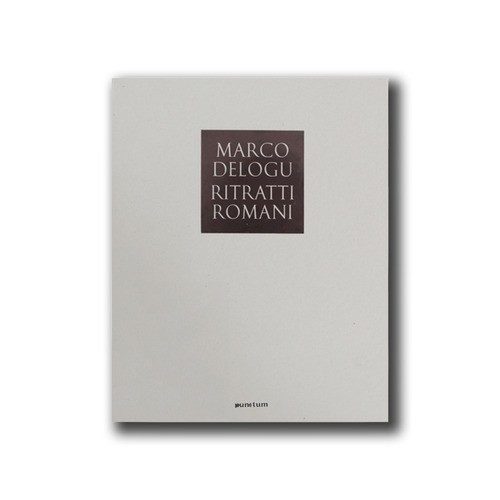Descrizione
Lugo Land is a collective project in which a group of photographers were invited to develop a sequence of 5 photographs accompanied by a short text, investigating the area within the boundering of the city of Lugo. What they discovered was, for example, that in Il Tondo community centre, where the old men gather to play marafone, every Sunday a community of Africans from various parts of Italy gather to celebrate the mass of the Church of Zion; that a business has relocated to via Puccini and that via Don Minzoni is the most beautiful street in Lugo; that change is afoot in Lugo’s Madonna dell Stuoie neighborhood and that the Bible prohibits the making of images of anything on earth or in heaven; that in Lugo the sun can be so dazzling it turns black, and that the spectators watching the air show at the flying club look just like Francesco Baracca in his statue in the centre of the old town. And that in bygone days Lugo was an enchanted forest which one photographer, shutter problem notwithstanding, actually managed to photograph.
The exhibition consists of 60 photographs of different size and printed with various techniques, on frames 40 x 50 cm with a mat.
Tim Davis, Seeing through Lugo
“A city is a series of façades.
There is nothing more promising than nothing.
They say Lugo comes from a Celtic word Lug, which the Romans read as Lucus Augusti, or something translatable as magical forest.
The First Law of Thermodynamics states that energy cannot be created or destroyed. There is a finite amount of energy in the universe. That is not true of human meaning. Even in the least promising, nearly non-narrative situation, there is always more meaning, as long as there are humans there to sniff it out. Animals are lovely, but they don’t know about meaning.
Fluorescent lights cast the same glowy democratic light everywhere.
Is there anything more powerful that we get from a work of art than a sense of the artist’s resourcefulness? Think of Messaien and The Quartet for the End of Time, or Borges writing so many essays about books he could not see to read.
I wouldn’t know how to photograph a magical forest.”


